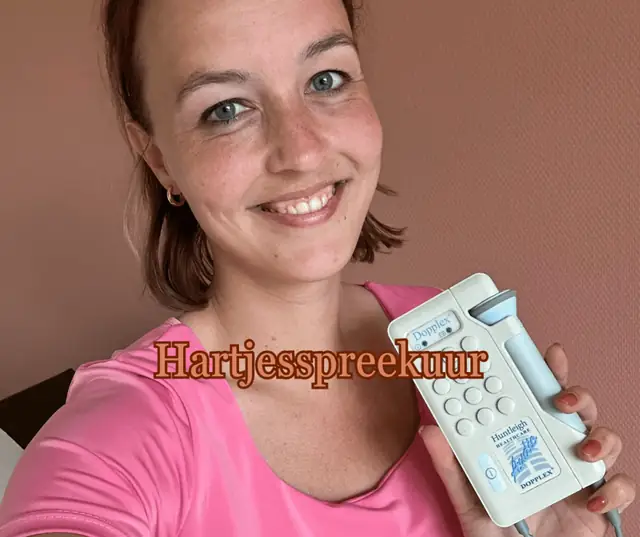Een warm welkom voor elk nieuw begin
- 5/5Cliëntbeoordeling
- 24/7Bereikbaar team
Waarom Verloskundigen PuurBegin in Kampen?
Met liefdevolle zorg en deskundigheid begeleiden we jullie door iedere fase.
-
Prenataal Screeningscentrum
Volledige zwangerschapszorg: Ook de 13 en 20 weken echo in eigen praktijk, door eigen echoscopisten. Direct de uitslag; ook in de avond en in het weekend.
-
Bevallen waar jij je goed voelt
Thuis of in het ziekenhuis: we staan naast je bij iedere keuze en situatie.
-
Avond- en weekend echospreekuren
Flexibel plannen? Onze eigen echopraktijk is regelmatig ook 's avonds en in het weekend geopend.
Ontmoet ons team
Maak kennis met de verloskundigen van PuurBegin en lees wie er voor jullie klaarstaan.
Inschrijven bij PuurBegin
Plan een afspraak via het formulier op de live site.
Bij ons ben je in goede handen. Wij zijn niet alleen een betrokken verloskundigenpraktijk, maar ook een professioneel echobureau en erkend screeningscentrum. Alles onder een dak, met eigen echoscopisten. Daardoor houden we de lijnen kort, kennen we jouw situatie goed en zijn we 24 uur per dag bereikbaar voor al je vragen.
We werken met een vast, kleinschalig team van maximaal 5 verloskundigen. Zo zie je altijd bekende gezichten tijdens je controles en weet je zeker dat iedereen al hebt ontmoet voordat je gaat bevallen. Wel zo prettig, toch?
Binnen onze praktijk bouwen we graag een persoonlijke relatie op en willen we er echt voor je zijn. Alles is bij ons bespreekbaar; je hoeft de drempel van 'even zorgen' niet te voelen want je mag ons altijd bellen. Bij ons krijg je altijd direct de verloskundige aan de lijn en geen assistente. Zo hoef je nooit 2x je verhaal te doen en ben je snel geholpen.
Onze praktijk bestaat uit een klein, betrokken en warm team van verloskundigen, die allen de beste zorg voor jou voorop hebben staan. Doordat je niet steeds wisselende verloskundigen ziet, kijk je ons team snel in een band mens op maat en een sterke wisselwerking bij jouw bevalling. Bij een verloskundige in Kampen is een van de belangrijkste dingen een voor de hand liggende verloskundige met wie jij een klik hebt en die bij jouw verhaal past. Verder hebben wij jarenlange ervaring met zowel de hoge dag uit en dag in situaties van zwangeren. Niemand is binnen onze praktijk daardoor onbekend en als jij belt weten we altijd wie je bent en zijn wij er om je verhaal bij ons doen.
Wij zijn Verloskundigen PuurBegin in Kampen vinden het belangrijk dat er genoeg tijd voor jou is tijdens de controles en je zwangerschap en daarom bieden wij standaard extra lange controles van 20 minuten en sommige controles zelfs 30–60 minuten. Omdat iedere zwangerschap uniek is, kan het soms wenselijk zijn om ook extra controles tussendoor te plannen. Daarom bieden wij standaard het hartjesspreekuur aan in onze praktijk in Kampen voor als je even extra gerustgesteld of gewoon graag eens extra naar de baby wil luisteren (bijvoorbeeld met familie erbij).
Samen Sterkt met Verloskundig Samenwerkingsverband Zwolle (VSV Zwolle)
Bij Verloskundigen PuurBegin zijn we trots lid van het Verloskundig Samenwerkingsverband, VSV Zwolle. Dit regionale netwerk bundelt verloskundigen, gynaecologen en andere zorgexperts om de beste zorg te bieden aan zwangere vrouwen in Kampen en omgeving. Dankzij je VSV combineer je persoonlijke aandacht met medische expertise en zorg je dat je altijd de beste zorg krijgt – thuis of in het ziekenhuis. Meer weten? Kijk op vsvzwolle.nl. Met ons VSV Zwolle ben je in goede handen!
Ervaringen van gezinnen
Lees wat andere ouders vertellen over de begeleiding bij Verloskundigen PuurBegin.
Wat een warm en professioneel team! Ik voelde me gehoord en gesteund, ook bij onverwachte wendingen.
Tijdens de bevalling gaf Anita precies de rust en vertrouwen die ik nodig had. Ook in de kraamweek bleven ze betrokken.
De avondspreekuren waren ideaal voor ons. Elke afspraak was vriendelijk en informatief. Echt een aanrader!
Veelgestelde vragen
Wanneer kan ik mij inschrijven?
Vanaf het moment dat je een positieve zwangerschapstest hebt mag je je inschrijven. Je krijgt binnen 24 uur een reactie en plannen direct het eerste gesprek.
Hoe bereid ik me voor op de bevalling?
Wij bieden voorlichtingsavonden, een digitaal informatiepakket en helpen je bij het maken van een geboorteplan dat bij jullie past.
Kan ik kiezen tussen thuis of ziekenhuis bevallen?
Ja, die keuze is aan jou. We bespreken alle scenario's tijdens het traject zodat je weet wat mogelijk is en wat bij je past.
Je bereikt ons tijdens kantooruren op 085 40 19 095 of via info@verloskundigenpuurbegin.nl. Spoed? Bel dan 06 53 65 91 91.
Adres:
Orkestlaan 148
8265RC Kampen
Wij zijn 24 uur per dag bereikbaar voor spoed.
Klaar om je aan te melden?
Wij ontvangen je graag bij ons op de praktijk of via een telefonische kennismaking. We bespreken jouw vragen en wensen, zodat je met een goed gevoel verder kunt.
Laatste blogs
- 8 dingen over snoepgroenten en PFAS-pesticiden 8 december 2025
- Kan ik seks hebben tijdens de zwangerschap? 22 oktober 2025
- Alles over Postpartum Schildklierproblemen: Wat nu? 21 oktober 2025





